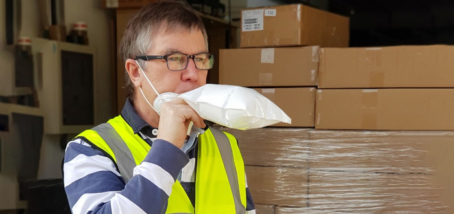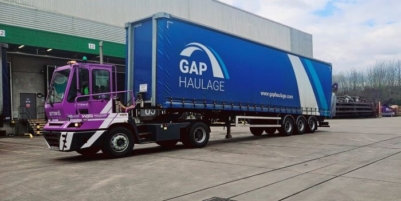-
Nutrivend selects Forterro’s Orderwise to support online expansion and streamline operations - April 11, 2025
-
ARROWXL LAUNCHES AMBITIOUS ZERO WASTE ROADMAP - April 8, 2025
-
THE BCMPA’S NEW CAMPAIGN DRIVES OUTSOURCING SUCCESS IN Q1 - April 7, 2025
-
BLACKOUT TECHNOLOGIES TARGETS TELEMATICS-INTEGRATED MOBILE DEVICE BLOCKING TO COMBAT SMARTPHONE DISTRACTION - April 1, 2025
-
Sparck Technologies awarded Royal designation - March 27, 2025
-
OpenADR Alliance announces first OpenADR 3.0 certified products with EVoke Systems, E.ON Energy and Universal Devices - March 25, 2025
-
Growing fulfilment and contract packer appoints new Managing Director - March 25, 2025
-
When is it time to invest in a WMS? Understanding the key trigger points - March 25, 2025
-
eCapital helps Vantage Recruitment on its journey to financial success - March 24, 2025
-
Hugo Beck Celebrates 70 Years of Packaging Innovation with Open House Events - March 20, 2025
Leading breathalyser firm AlcoSense has issued advice to help employers reduce risk when carrying out alcohol testing for safety-critical staff during the COVID-19 pandemic.
Where re-usable, electronic devices are being used:
- The person in charge of the tests should wear an FFP-3 or better face mask and surgical gloves, clean the instrument after each use with a disinfectant wipe and wash their hands regularly
- A new, sealed mouthpiece must be used for every test. The employee should remove the mouthpiece from its packaging themselves
- All testing should be undertaken outside
- The employee should wear disposable gloves that are thrown away after the test is completed
- The user should blow into the device at least two metres away from the tester and any other people present
- The employee and tester should stand perpendicular to any wind, e.g. the wind blows across them from the side so the exhaled breath from one person does not blow in the direction of the other.
- They must be careful not to suck air into their mouth whilst using the breathalyser
- The employee should wash their hands immediately afterwards
To minimise still further the risk of virus transmission, companies could switch to disposable breathalysers that are discarded after use. With a single-use breathalyser the test can be completed by the employee under supervision, without the need for anyone else to handle it before disposal.
If an employee tests positive for alcohol with the disposable breath test, it can be followed up with an electronic test to establish a numerical breath alcohol reading.
Hunter Abbott, managing director of AlcoSense Laboratories, comments: “There is no evidence of COVID-19 being transmitted through alcohol breath testing, but disposable kits provide a sound alternative to add a further layer of protection for the employee and employer – and should be considered whilst we remain in the grip of coronavirus”.
AlcoSense single-use breathalysers show not only the presence of alcohol but also the indicative level of intoxication.
Crystals inside the tube change colour from yellow to green when alcohol is detected. The further up the graduated tube the green colour appears, the greater the concentration of alcohol.
A blow bag ensures that the right volume of deep-lung air is exhaled for maximum accuracy. Too little air results in a falsely low reading, too much means the reading is too high.
Employers have a general duty under the Health and Safety at Work Act 1974 to ensure the health, safety and welfare of their staff. If an employee is allowed to work whilst under the influence, and their behaviour places themselves or others at risk, the employer could be prosecuted.
Workplace testing is primarily carried out in industries such as construction, food processing, aviation, road and rail transport, logistics and warehousing – particularly where machinery or electrical equipment is being operated – but also in any situation where alcohol is not compatible with a safe working environment.
A recent study by UK Addiction Treatment revealed that 40% of industrial accidents are linked to substance abuse.
Another report from the Institute of Alcohol Studies suggests that working whilst hungover or under the influence of alcohol costs the UK economy between £1.2bn and £1.4bn a year, due to reduced productivity.
For more information on single-use breathalysers, visit: alcosense.co.uk/uksingles – prices start from £2.99 with discounts available for bulk purchasing.
































